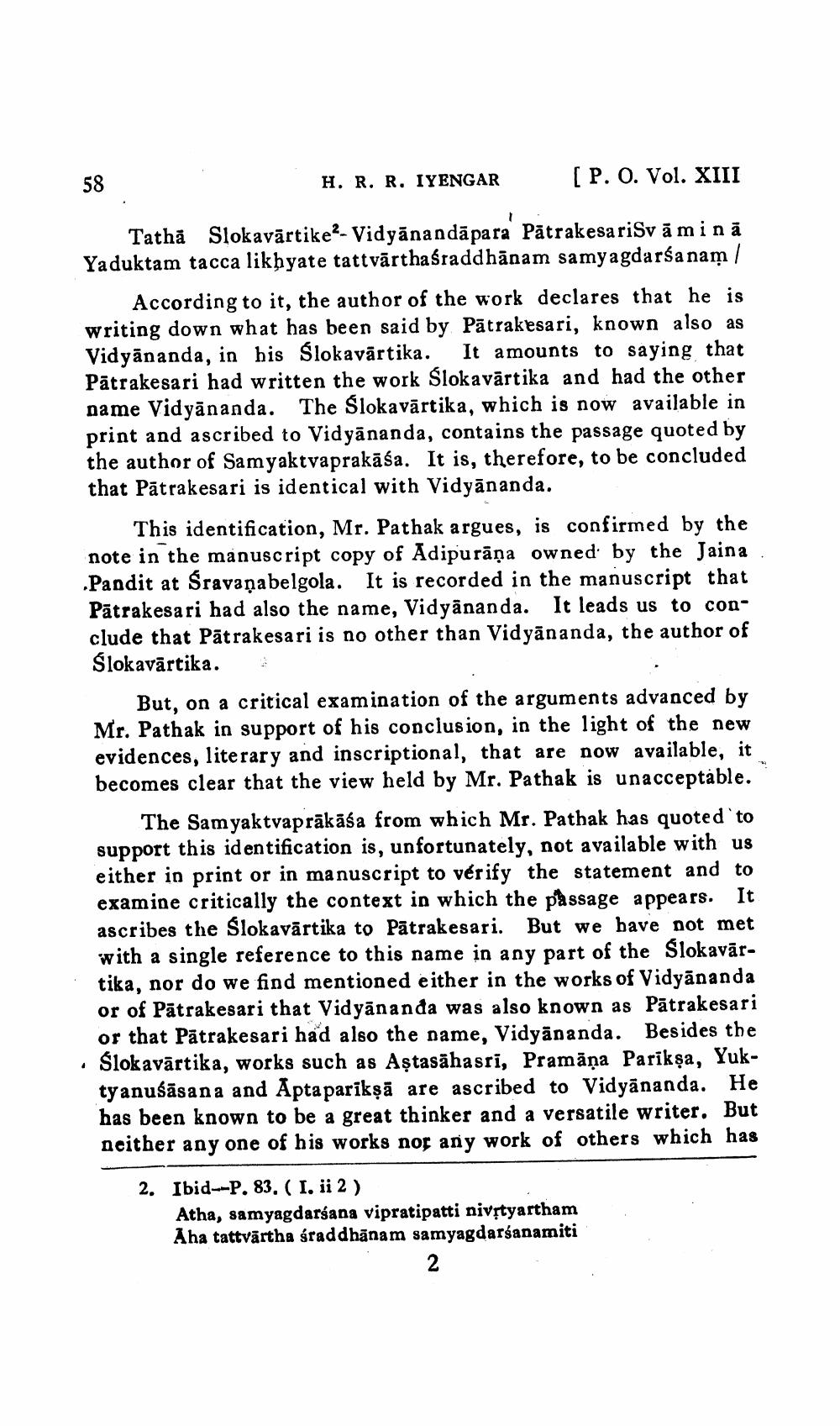________________
H. R. R. IYENGAR
[P. O. Vol. XIII
Tathă Slokavārtikel-Vidyānandāpara PătrakesariSvāminā Yaduktam tacca likhyate tattvārthaśraddhānam samyagdarśanam/
According to it, the author of the work declares that he is writing down what has been said by Pātrakesari, known also as Vidyānanda, in his Slokavārtika. It amounts to saying that Pātrakesari had written the work Slokavārtika and had the other name Vidyānanda. The Slokavārtika, which is now available in print and ascribed to Vidyānanda, contains the passage quoted by the author of Samyaktvaprakāśa. It is, therefore, to be concluded that Pātrakesari is identical with Vidyānanda.
This identification, Mr. Pathak argues, is confirmed by the note in the manuscript copy of Adipurāņa owned by the Jaina Pandit at Śravanabelgola. It is recorded in the manuscript that Pātrakesari had also the name, Vidyānanda. It leads us to conclude that Pātrakesari is no other than Vidyānanda, the author of Slokavārtika.
But, on a critical examination of the arguments advanced by Mr. Pathak in support of his conclusion, in the light of the new evidences, literary and inscriptional, that are now available, it becomes clear that the view held by Mr. Pathak is unacceptable.
The Samyaktvaprākāśa from which Mr. Pathak has quoted to support this identification is, unfortunately, not available with us either in print or in manuscript to verify the statement and to examine critically the context in which the passage appears. It ascribes the Slokavārtika to Pātrakesari. But we have not met with a single reference to this name in any part of the Slokavārtika, nor do we find mentioned either in the works of Vidyānanda or of Pātrakesari that Vidyānanda was also known as Pātrakesari or that Pătrakesari had also the name, Vidyānanda. Besides the • Slok avārtika, works such as Aștasähasri, Pramāņa Parikşa, Yuk
tyanuśāsana and Apta parīkņā are ascribed to Vidyānanda. He has been known to be a great thinker and a versatile writer. But neither any one of his works nor any work of others which has
2. Ibid--P. 83, ( I. ii 2)
Atha, samyagdarśana vipratipatti nivstyartham Aha tattvārtha sraddhānam samyagdarśanamiti




